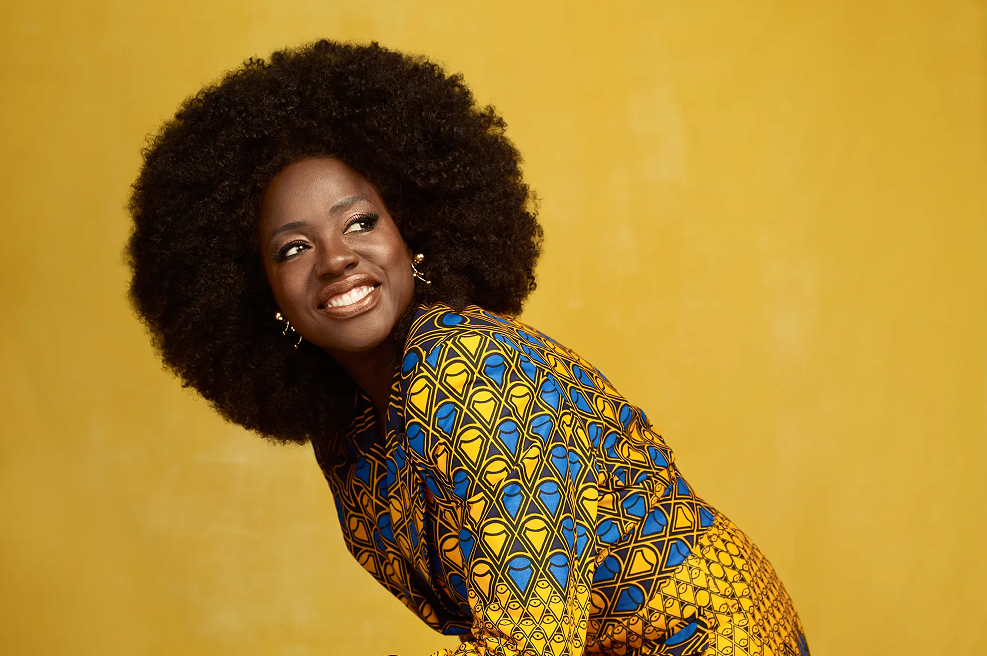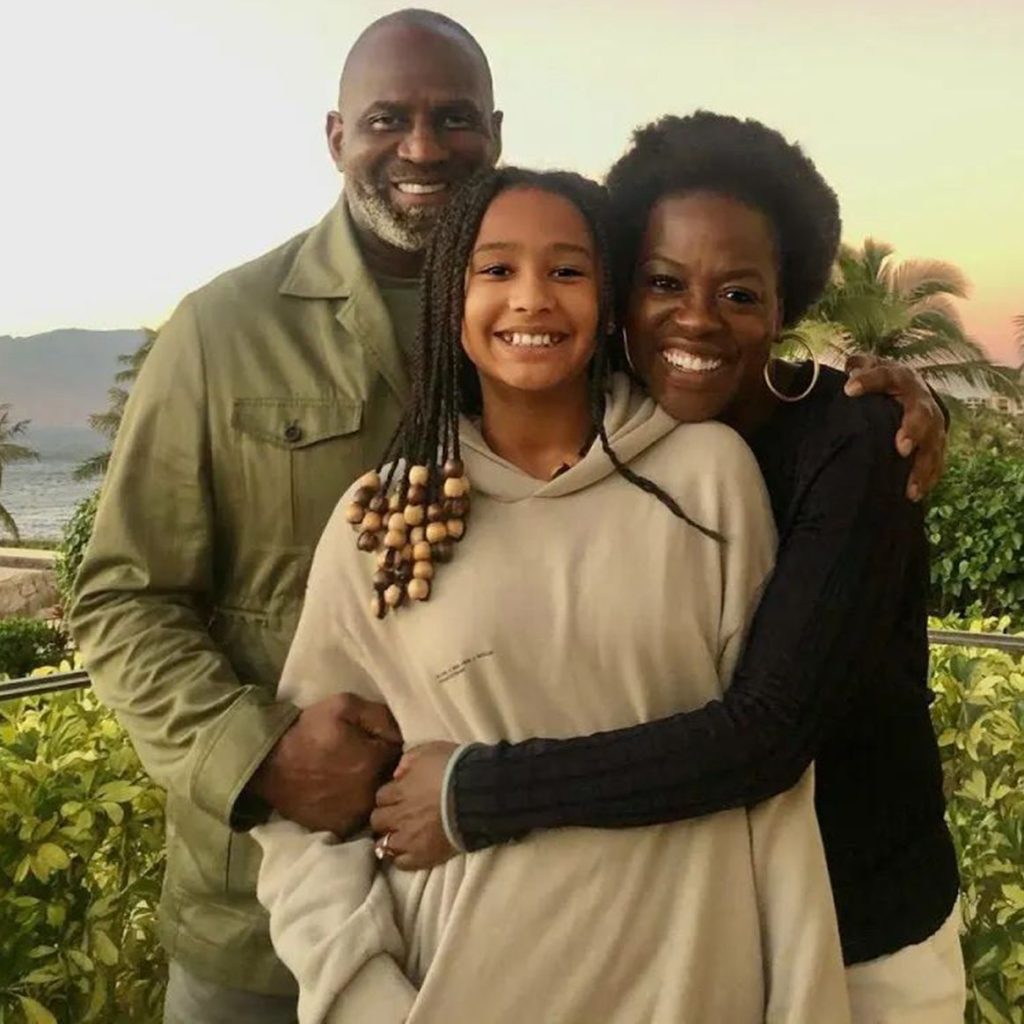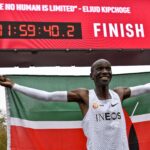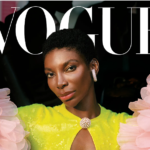Viola Davis is tired. I know because she has told me – “Let me just be honest, I’m tired,” she says at one point, with all the heartfelt emphasis of those Academy Award-winning eyes – but I also know because I’ve seen her latest film, and anyone would be tired after pulling that off.
The Woman King is an 1820s-set, action-packed historical epic about the Agojie, the all-female warrior unit of the Kingdom of Dahomy, which once existed in what is now Benin.
Davis gives a performance of phenomenal physical and emotional power as Agojie general Nanisca. Her co-stars include Star Wars’ John Boyega as King Ghezo, but while he spends most of the film peacocking around the palace, the women are out doing bloody battle. The fight choreography is thrilling, and the then 56-year-old Davis did nearly all her own stunts.
In preparation, Davis and her female castmates, including erstwhile 007 Lashana Lynch and Thuso Mbedu, the fast-rising star of Barry Jenkins’ The Underground Railroad, embarked on a rehearsal period like no other. “I mean, I’m a woman who works out, but not like five hours a day,” says Davis.
Today, she looks red-carpet-ready in a white pearlescent dress, with a full face of flawless makeup and hair piled high. Only her monogrammed hotel slippers suggest she is still in recuperation mode. “Me and Thuso would do choreography where we had to fight 15 or more men, on a day-to-day basis.” The sprinting, weightlifting and martial arts continued even after they had flown out to the South African shoot location, then in 30C heat. “Trust me,” Davis adds with a throaty chuckle, “by the time I got to the last stunt, I definitely celebrated with a glass of pinotage.”
This eight-month warrior workout was only the most recent leg of The Woman King’s seven-year struggle to the screen. “It’s a fight,” says Davis, who was also one of the film’s producers through her company JuVee Productions. “I call it The Fight. It’s a fight to find partners who have the same vision as you, who are able to give it a green light. And then the other fight, if it’s a predominantly Black female cast, is that because we haven’t led the global box office, there’s no precedent that it will work and make the money back for the people who invest in it … The bottom line is money. It’s not about cultural impact – it’s about money.”
Davis says telling stories she wants to tell remains a struggle, even now. In 2016, she completed the coveted “triple crown of acting” (an Academy Award, an acting category Emmy and a Tony – or two, in Davis’s case) by winning the best supporting actress Oscar for her role opposite Denzel Washington in the 1950s drama Fences. She is the first and, to date, only Black actor to do so.
Only eight years earlier, she had sprung to mainstream notice with an eight-minute, single-scene, Oscar-nominated turn alongside Meryl Streep in the 2008 film Doubt. And yet, she says: “I can’t walk into every room and get any movie made. I actually feel pretty confident, but I can’t do that.”
But she is used to fighting for what she wants. In April, her bestselling memoir Finding Me revealed just how much she had to overcome in her youth.
Davis grew up the second-youngest of six children, amid abject poverty, racism, sexual abuse, domestic violence and alcoholism. Living in a rat-infested, condemned building, the sisters were too terrified to go to the toilet at night and all became chronic bed-wetters.
When the pipes froze over, during the merciless Rhode Island winters, they had no way to clean themselves and had to go to school smelling of urine, only to face more bullying. Davis says she and all her sisters were subjected to sexual assaults by relatives, baby-sitters and the neighbourhood “dirty old men” while their parents were too caught up in their own struggle for survival to offer any protection. (She has since forgiven and reconciled with them both.)
She calls her four sisters “my platoon”, while their predominantly white home town was “a minefield … where you were constantly trying to dodge little and big explosions that could level you”. No wonder she feels such a personal connection to The Woman King. “Here’s the thing: we’re sisters, the Agojie are sisters. That’s not the mentality of just hanging out, doing some shopping and having an Aperol spritz.
It is a spirit of literally going into battle, and it’s for the love of each other that you’re fighting.” Nanisca is the kind of action role that might have been all high kicks and smart quips in other hands, but Davis imbues enough authentic emotion that she is already being talked of as a contender for yet more awards. “I don’t see Nanisca as an action hero,” she says. “She is a woman who is a warrior.”
One of the movie’s most powerful moments comes from this understanding. It’s in a scene at the slave market, where Nanisca and her troops are meeting General Oba of the enemy Oyo Empire, for what he assumes is a payment of tribute. Instead, Nanisca ambushes him with an attempt to provoke a war, but just before that moment-of-no-return a fleeting expression of terror passes across her face. It is the physical demonstration of a line that Davis often quotes by the novelist Anne Lamott: “Courage is fear said with prayers.”
“Every time I approached Oba,” Davis says, “I was approaching the man who sexually assaulted me. I was not just approaching the enemy. Listen, the things that have taken the strongest human being down have been a traumatic memory that they could not fight through.”
Does she mean “me” in the method acting sense? Or is she drawing directly from her own experience? “I’m talking about Nanisca, but I talk about Viola in terms of facing my fears too, every single day … Every woman who has been sexually assaulted knows exactly what I mean at that moment.”
These glimpses of the human beneath the genre trappings have become a Viola Davis speciality. In the six-season TV melodrama How to Get Away With Murder, it was the moment when Davis’s character, the law professor, adulteress and possible sociopath Annalise Keating, gets home after a long day of being fierce and fabulous, sits down and takes her wig off. In Fences, it’s the streaming tears and snot that Rose never wipes away as she finally offloads decades of disappointments on her husband.
Davies has had her own struggles with infertility, as she details in her memoir. When she was a single woman in her early 30s, an operation to remove fibroids on her womb left her with a small window in which to get pregnant. This led to an incident, now passed into Viola Davis lore, in which she manifested her future husband with a kañeleng-like directness. “God, you have not heard from me in a long time. I know you’re surprised.
My name is Viola Davis,” she remembers saying, before issuing, in prayer form, a dating wishlist that included “ex-athlete”, “someone real country” and someone who “had a wife before me and children already”, so there was no pressure to get pregnant. Three weeks later she met the actor and producer Julius Tennon, who was all of those things, and in 2011 they adopted their daughter, Genesis.
















